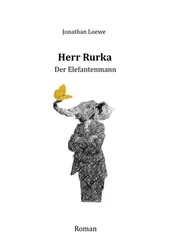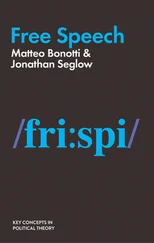“I won’t.”
“But you can jerk yourself off while you look at me.”
“I am.”
“You want to fuck what you’re looking at.”
“I do.”
“But you can’t.”
“No.”
“You want to feel how wet I am.”
“I do.”
“But you can’t.”
“But I can see.”
“But you can’t see how tight I get when I’m about to come.”
“I can’t.”
“Tell me what I look like and I’ll come.”
They came together, without touching, and it could have ended there. She could have rolled onto her side, put her head on his chest. They could have fallen asleep. But something happened: she looked at him, held his gaze, and once again closed her eyes. Jacob closed his eyes. And it could have ended there. They could have explored each other in the bed, but Julia rose and explored the room. Jacob didn’t see her — he knew not to open his eyes — but he heard her. Without saying anything, he also got up. They each touched the bench at the foot of the bed, the desk and the cup with its pens, the tassels on the curtain tiebacks. He touched the peephole, she touched the dial that controlled the ceiling fan, he pressed his palm against the mini-fridge’s warm top.
She said, “You make sense to me.”
He said, “You, too.”
She said, “I really love you, Jacob. But please just say ‘I know.’”
He said, “I know,” and felt along the walls, along the mounted quilts, until he came to the light switch. “I think I just made it dark.”
Julia became pregnant with Sam a year later. Then Max. Then Benjy. Her body changed, but Jacob’s desire didn’t. It was their volume of withholding that changed. They continued to have sex, although what had always arisen spontaneously came to require either an impetus (drunkenness, watching Blue Is the Warmest Color on Jacob’s laptop in bed, Valentine’s Day) or muscling through the self-consciousness and fear of embarrassment, which usually led to big orgasms and no kissing. They still occasionally said things that, the moment after coming, felt humiliating to the point of needing to physically remove oneself to get an unwanted glass of water. Each still masturbated to thoughts of the other, even if those fantasies bore no blood relationship to lived life and often included another other. But even the memory of that night in Pennsylvania had to be withheld, because it was a horizontal line on a doorframe: Look at how much we’ve changed .
There were things Jacob wanted, and he wanted them from Julia. But the possibility of sharing desires diminished as her need to hear them increased. It was the same for her. They loved each other’s company, and would always choose it over either aloneness or the company of anyone else, but the more comfort they found together, the more life they shared, the more estranged they became from their inner lives.
In the beginning, they were always either consuming each other or consuming the world together. Every child wants to see the marks ascend the doorframe, but how many couples are able to see progress in simply staying the same? How many can make more money and not contemplate what could be bought with it? How many, approaching the end of child-bearing years, can know that they already have the right number of children?
Jacob and Julia were never ones to resist convention on principle, but neither could they have imagined becoming quite so conventional: they got a second car (and second-car insurance); joined a gym with a twenty-page course offering; stopped doing their taxes themselves; occasionally sent back a bottle of wine; bought a house with side-by-side sinks (and house insurance); doubled their toiletries; had a teak enclosure built for their garbage bins; replaced a stove with one that looked better; had a child (and bought life insurance); ordered vitamins from California and mattresses from Sweden; bought organic clothing whose price, amortized over the number of times it was worn, all but required them to have another child. They had another child. They considered whether a rug would hold its value, knew which of everything was best (Miele vacuum, Vitamix blender, Misono knives, Farrow and Ball paint), consumed Freudian amounts of sushi, and worked harder so they could pay the very best people to care for their children while they worked. They had another child.
Their inner lives were overwhelmed by all the living — not only in terms of the time and energy required by a family of five, but of which muscles were forced to strengthen and which withered. Julia’s unwavering composure with the children had grown to resemble omnipatience, while her capacity to express urgency to her husband had shrunk to texted Poems of the Day. Jacob’s magic trick of removing Julia’s bra without his hands was replaced by the depressingly impressive ability to assemble a Pack ’n Play as he carried it up the stairs. Julia could clip newborn fingernails with her teeth, and breast-feed while making a lasagna, and remove splinters without tweezers or pain, and have the kids begging for the lice comb, and compel sleep with a third-eye massage — but she had forgotten how to touch her husband. Jacob taught the kids the difference between farther and further , but no longer knew how to talk to his wife.
Their inner lives were nurtured in private — Julia designed houses for herself; Jacob worked on his bible, and bought a second phone — and a destructive cycle developed between them: with Julia’s inability to express urgency, Jacob became even less sure that he was wanted, and more afraid of risking foolishness, which furthered the distance between Julia’s hand and Jacob’s body, which Jacob had no language to address. Desire became a threat — an enemy — to their domesticity.
When Max was in kindergarten, he used to give everything away. Any friend who would come over for a playdate would inevitably leave with a plastic car or stuffed animal. Any money that he somehow acquired — change found on the sidewalk, a five-dollar bill from his grandfather for having made a persuasive argument — would be offered to Julia in a checkout line, or to Jacob at a parking meter. He invited Sam to take as much of his dessert as he liked. “Go on,” he would say when Sam demurred. “Take, take.”
Max wasn’t responding to the needs of others, which he seemed as capable of ignoring as any child. And he wasn’t being generous — that would require the knowledge of giving, which was precisely what he lacked. Everyone has a pipeline through which he pushes what he is willing and able to share of himself out into the world, and through which he takes in all of the world that he is willing and able to bear. Max’s conduit wasn’t bigger than anyone else’s, it was simply unclogged.
What had been a source of pride for Jacob and Julia became a source of concern: Max will be left with nothing. Careful not to suggest that there was anything wrong with the way he lived, they gently introduced notions of worth, and the finitude of resources. At first he resisted—“There’s always more”—but as children do, he came to understand that there was something wrong with the way he lived.
He became obsessed with comparative value. “Could you get one house for forty cars?” (“It depends on the house and the cars.”) Or, “Would you rather have a handful of diamonds or a houseful of silver? A hand the size of yours, a house the size of this one.” He started trading compulsively: toys with friends, belongings with Sam, deeds with his parents. (“If I eat half of this kale, will you let me go to bed twenty minutes later?”) He wanted to know if it was better to be a FedEx driver or a music teacher, and became frustrated when his parents challenged his use of better . He wanted to know if it was OK that his dad had to pay for an extra ticket when they took his friend Clive to the zoo. “I’m wasting my life!” he would often exclaim when not engaged in an activity. He crawled into bed with them, too early one morning, wanting to know if that’s what being dead is.
Читать дальше












